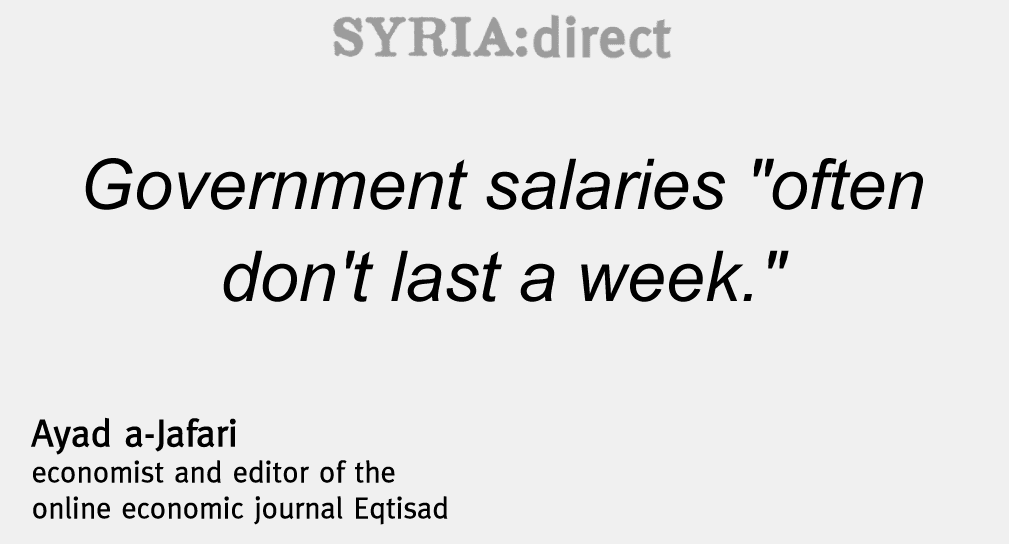Syrian economist: Government salaries ‘don’t last a week’
The gap between the cost of living and the average […]
31 March 2016
The gap between the cost of living and the average income of a Syrian family in regime territory more than doubled since 2011, according to a recent study released by pro-regime daily Al-Watan. “According to the study, the stagnation in wages is a result of the lack of demand for goods and services resulting from inflation and the ongoing conflict,” reported Al-Watan.
Before the war, the average Syrian’s salary “barely lasted half the month,” Ayad a-Jafari, an economist and the editor of the online economic journal Eqtisad, tells Syria Direct’s Mohamed al-Haj Ali. Now, their salaries “don’t last a week.”
Q: What is driving the increased cost of living cited in the Al-Watan study?
Five years of war have destroyed public and private infrastructure and limited people’s ability to conduct business. This means higher unemployment, increased inflation and lower salaries in real terms.
Western economic sanctions have certainly had some impact on this situation. But this effect is limited. The main driver of the deteriorating conditions is the continued armed conflict.
[Ed.: When al-Jafari says “in real terms,” he is referring to the actual purchasing power of Syrians’ wages. Although average monthly wages have risen from SP11,000 in 2011 to SP26,500 in 2016, this increase has not kept pace with the higher cost of living.]Q: How are Syrians in regime territory dealing with the higher cost of living combined with stagnant wages?
People working in the private sector have seen their wages increase somewhat alongside the increased cost of living. But government employees have not seen a comparable increase. Their salaries in 2011 barely lasted half the month—many would work second jobs to cover all of their household expenses—now their salaries often don’t last a week.
Meanwhile, the regime has created opportunities for its allies to earn extra income. For example, the government hires “relatives of martyrs” for public-sector positions and has opened the door for mercenaries in the National Defense militias to make money off smuggling between regime and rebel-controlled territory.







